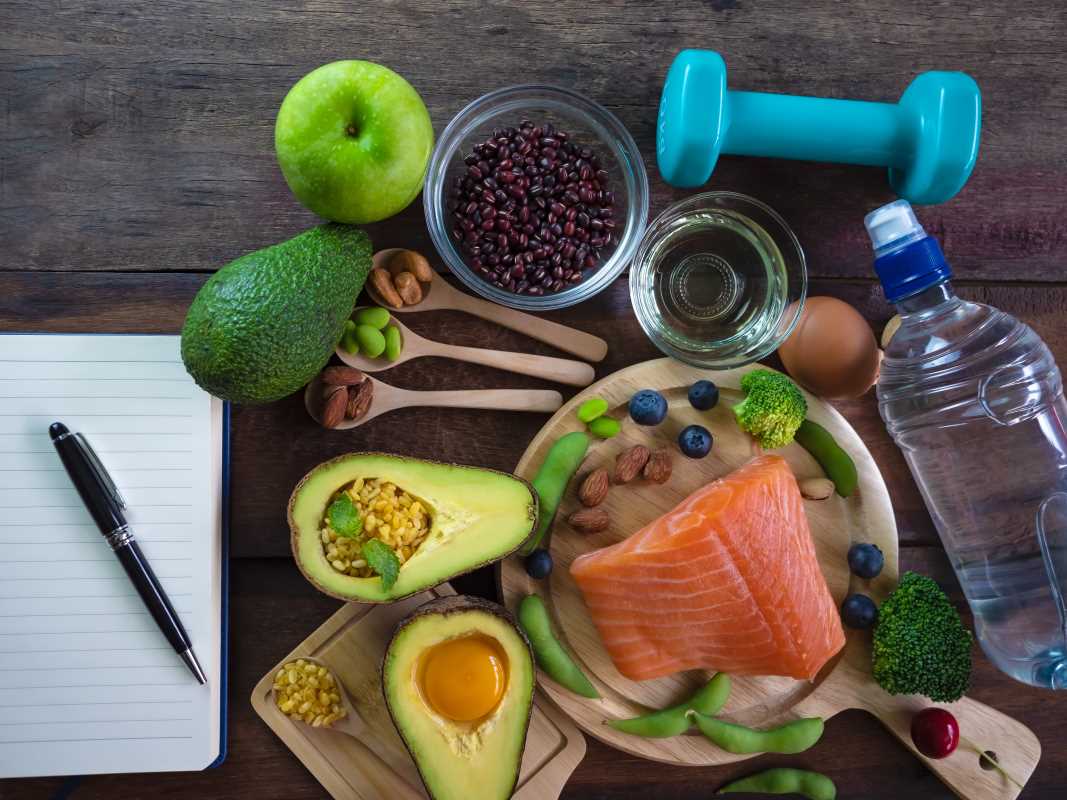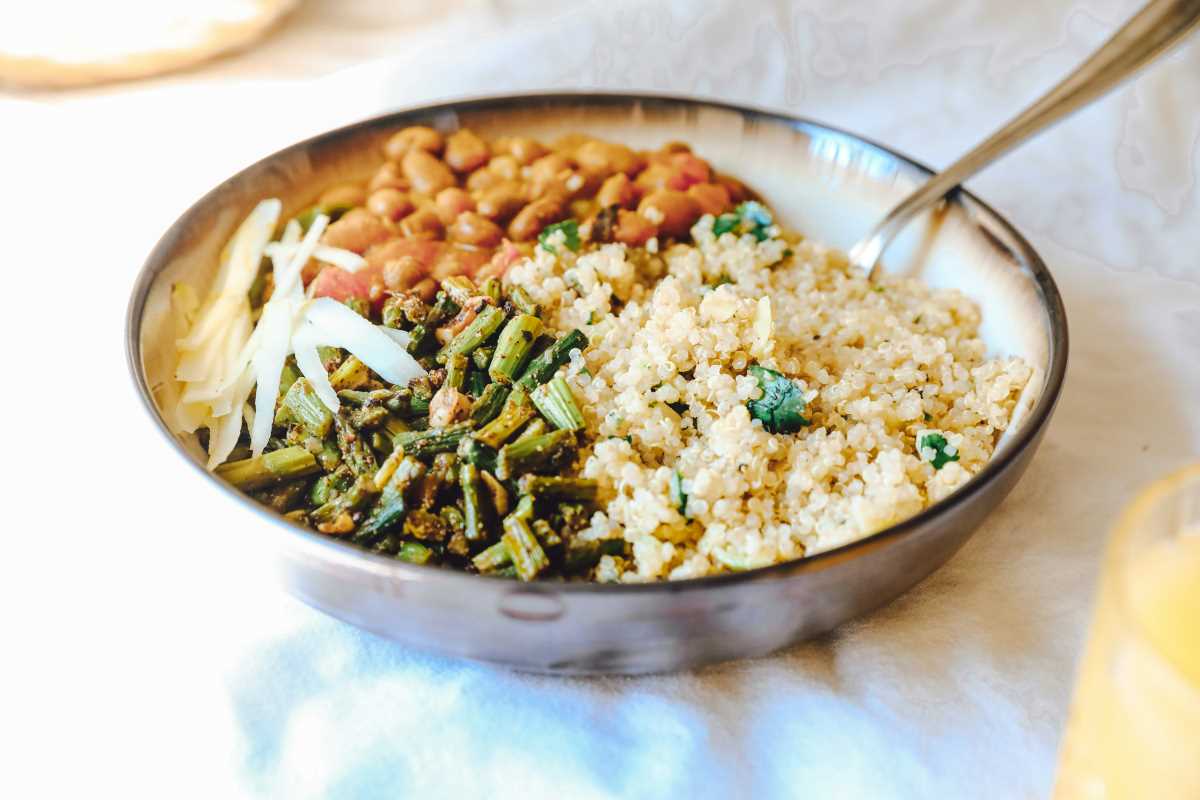Going through menopause can feel like your body decided to throw a surprise party—and forgot to invite you. One day you're fine, the next you're dealing with hot flashes, mood swings, and sleep issues that make you wonder what happened to the person you used to be.
If you're navigating this journey solo, you might feel like you're figuring it all out on your own. The good news? You don't need a team of experts or a complicated support system to manage menopause symptoms effectively. With the right nutrition and exercise approach, you can take control and feel more like yourself again.
What's Really Happening During Menopause?
Think of menopause as your body's way of changing gears. Your ovaries gradually stop producing estrogen and progesterone—the hormones that have been running the show for decades. This hormonal shift typically happens between ages 45 and 55, and it brings some unwelcome guests to the party.
Common symptoms include:
- Hot flashes and night sweats
- Mood changes and irritability
- Sleep problems
- Weight gain, especially around your middle
- Brain fog and memory issues
- Joint aches and stiffness
While these changes are completely normal, they don't have to rule your life.
How Food Can Be Your Best Friend
Your kitchen might just be your secret weapon against menopause symptoms. The right foods can help balance your hormones naturally and ease many uncomfortable symptoms.
Focus on These Hormone-Happy Foods
Phytoestrogens are plant compounds that act like weak estrogens in your body. They're like nature's hormone therapy, but gentler. You'll find them in:
- Soy foods (tofu, edamame, soy milk)
- Flaxseeds and chia seeds
- Lentils and chickpeas
- Whole grains like oats and barley
Try adding a tablespoon of ground flaxseed to your morning smoothie or tossing some edamame into your salad. Small changes, big impact.
Omega-3 fatty acids are inflammation fighters that can help with mood swings and joint pain. Load up on:
- Fatty fish like salmon, mackerel, and sardines
- Walnuts and almonds
- Avocados
- Olive oil
Calcium and Vitamin D become extra important now since estrogen helps protect your bones. When estrogen drops, your bones need more support. Think:
- Greek yogurt and cheese
- Dark leafy greens
- Fortified plant milks
- Canned salmon with bones
Foods to Limit
Some foods can make menopause symptoms worse. You don't have to eliminate them completely, but cutting back can help:
- Caffeine and alcohol can trigger hot flashes and disrupt sleep
- Spicy foods might increase hot flashes (though this varies by person)
- Processed foods high in sugar can worsen mood swings and energy crashes
- Refined carbs can contribute to weight gain and blood sugar spikes
Moving Your Body Makes a Difference
Exercise might be the last thing you want to do when you're dealing with fatigue and mood swings, but it's one of the most effective ways to manage menopause symptoms. Plus, as a single person, you have the flexibility to create a routine that works entirely for you.
Strength Training is Your New Best Friend
After menopause, women lose muscle mass faster than before. Strength training helps you:
- Maintain bone density
- Keep your metabolism humming
- Improve mood and energy levels
- Sleep better
You don't need a gym membership or fancy equipment. Start with:
- Body weight exercises like squats, push-ups, and lunges
- Resistance bands (they're cheap and take up no space)
- Light weights or even water bottles
Aim for 2-3 strength sessions per week, focusing on major muscle groups.
Cardio for Hot Flash Relief
Regular cardio exercise can reduce the frequency and intensity of hot flashes. It also helps with:
- Weight management
- Better sleep
- Improved mood
- Heart health
The beauty of being single? You can choose activities you actually enjoy without compromising. Try:
- Brisk walking while listening to podcasts
- Dancing in your living room
- Swimming
- Cycling
- Hiking
Start with 20-30 minutes most days of the week. Build up gradually if you're just starting out.
Don't Forget About Flexibility
Yoga and stretching can help with joint stiffness and stress management. They're also perfect for those days when you need something gentler. Online yoga videos make it easy to practice at home on your own schedule.
Practical Tips for Single Life
Managing menopause solo has some unique advantages. You can:
Meal prep on your terms: Batch cook hormone-supporting meals without worrying about anyone else's preferences. Sunday afternoon meal prep can set you up for success all week.
Create your ideal sleep environment: Keep your bedroom cool, invest in moisture-wicking sheets, and set your own bedtime without negotiating with a partner.
Exercise when it works for you: Take that 6 AM yoga class or go for an evening walk without coordinating schedules.
Track your symptoms: Use a simple app or journal to identify patterns in your symptoms, mood, and what helps you feel better.
Simple Swaps to Get Started
Making big changes can feel overwhelming, especially when you're already dealing with menopause symptoms. Try these easy swaps:
- Replace your afternoon coffee with herbal tea
- Swap refined breakfast cereals for oatmeal topped with berries and nuts
- Choose whole grain bread instead of white bread
- Trade evening TV time for a 15-minute walk around your neighborhood
- Replace sugary snacks with a handful of nuts or Greek yogurt with fruit

.jpg)





